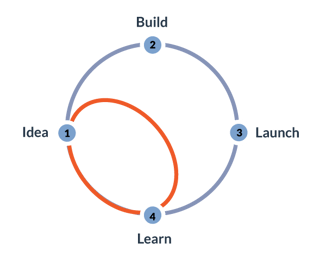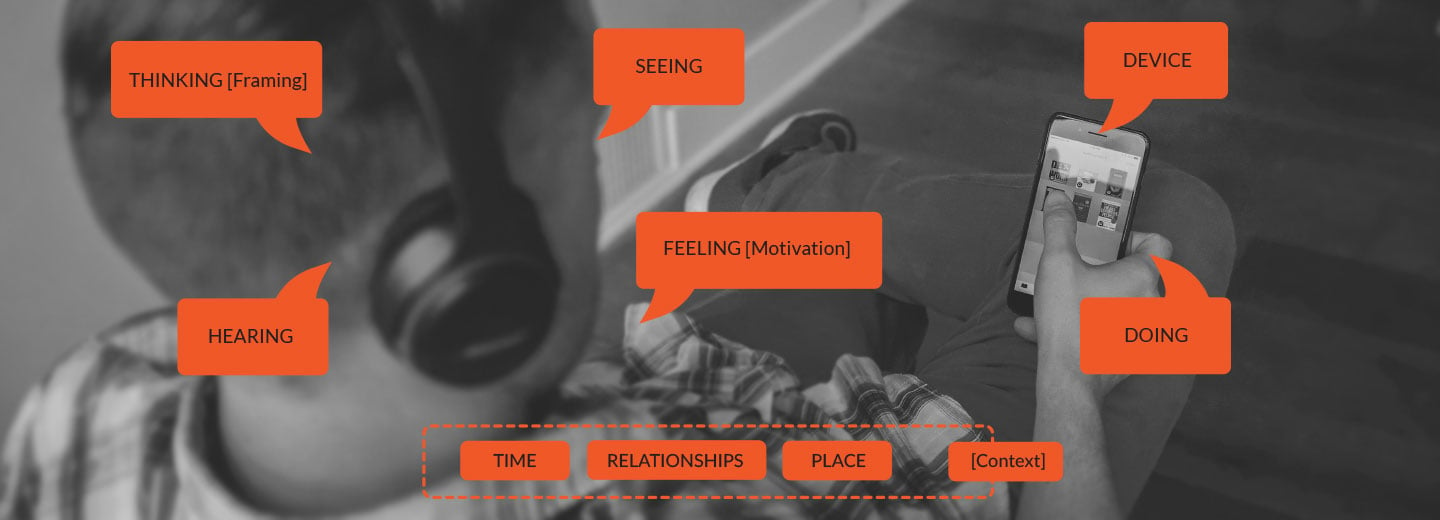The idea of design sprints is revealing that maybe the practice has become an expensive waste of time. When I started designing for something other than a magazine, and yes that was back in the days of dinosaurs, the need to just make it, do it, build it, was almost too much to bear.
You might guess I’m a highly visual person. And you'd be right. I am the type that needs to manifest the thing I’m thinking almost immediately or I’ll burst into flames, and when I wanted to show a new client what the end user would see, there was rarely an example already in existence. Flat sketches weren’t going to cut it anymore. Prototyping became my best friend.
Then I stumbled upon this gentleman, Jake Knapp , the author of SPRINT, who writes about a design process called design sprints. The goal is to get tangible results ridiculously fast. Design sprints skip all the user research and go directly to testing a functional, high-fidelity, real (or at least realistic) prototype. Insights gained from interaction outweigh any user research from weeks before. Now that research is gathering dust on a back shelf or getting tossed into a recycling bin. Design sprints are a thing — and they work. Just take a look at how Google does design sprints, and change the way your team currently functions to get to the finish-line faster with a solution that works.

Look, I know there are a ton of people out there who find value in typical user research like the kind often sold at UX/UI companies as part of a package. It’s detailed, thoughtful, and thoroughly documented. It’s become part of the design flow. Companies, especially larger ones, seem to like it, or at least expect it. And this research doesn’t come cheap. It’s a large part of the budget, and it’s a time-suck, becoming possibly a 4 week stretch before anything can actually begin. However, when it comes down to the actual design — that moment when you need to build and show the thing — the most valuable information doesn’t come from a user research document. The most valuable information comes from the first user tests.

The first user tests are gold. They might throw everything you thought you knew into chaos. They might break open ideas you’ve never explored. In the end, at least you know something. You’re left with actionable, useful, concrete information.
You learn things not revealed in the typical user research. That’s human. We’re touchy-feely. We’re tactile. Our experiences influence our behavior, change our opinions, and result in serendipity.
Tweet This
Does this mean I think user research is an expensive waste of time? Let’s take a step back. I don’t want to throw the user data out with the bathwater. The user is your focus. It’s true that you want to keep the user in the front of your mind — always. But inevitably, user tests surprise you in ways you couldn’t necessarily have predicted. You learn things not revealed in the typical user research. That’s human. We’re touchy-feely. We’re tactile. Our experiences influence our behavior, change our opinions, and result in serendipity.
I don’t want to make any of this sound too easy. You still have the challenge of what comes after the sprint. Good design still requires dedication and a really good team of skilled thinkers and doers. In the end, though, design sprints are valuable and help lead to a much stronger, better, and more innovative end result. It isn’t our job to ask how a user wants to do a thing. It’s our job to be one step ahead of the user. It’s our job to push the boundaries of how that thing is done. So, do you want to know if it works? Prototype it first.




